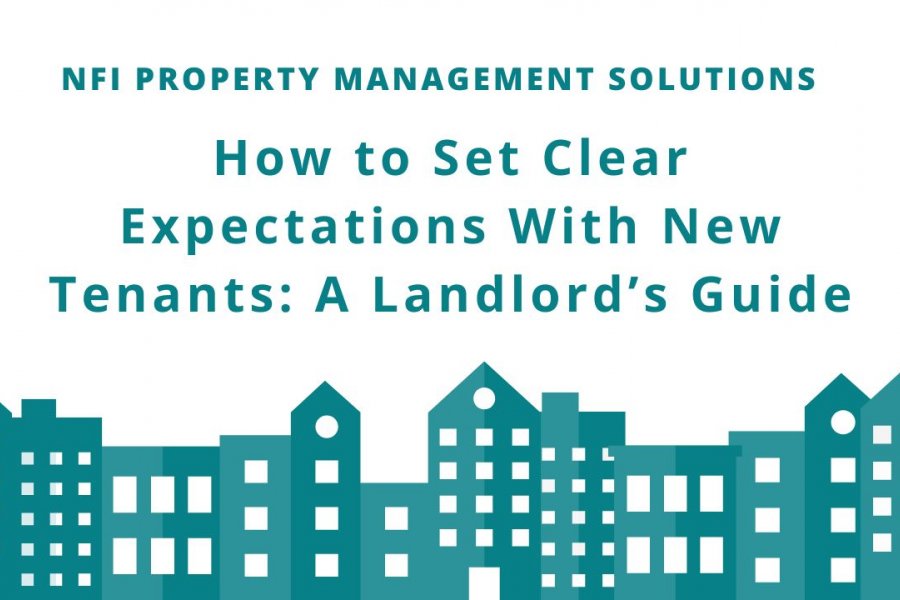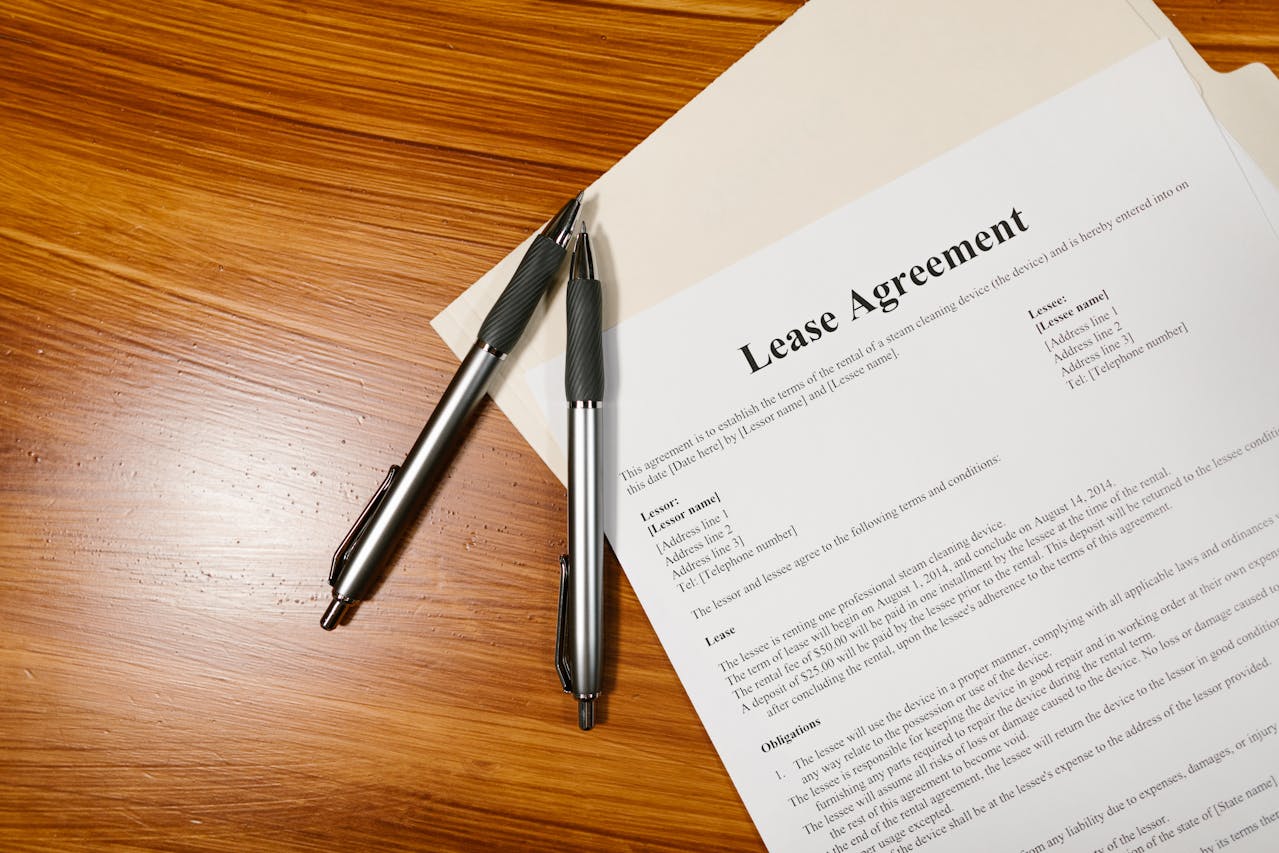
- Clear expectations prevent costly issues. Setting rules and responsibilities early helps avoid misunderstandings, late payments, and maintenance disputes.
- Communication is key to a smooth tenancy. Let tenants know how to reach you, what to expect in terms of response times, and how to report problems.
- A detailed lease and move-in walkthrough make a strong start. These steps ensure tenants understand their obligations and how to care for the property.
When welcoming a new tenant, setting clear expectations from the start can make a major difference in creating a smooth, professional relationship. Clear communication helps prevent misunderstandings, late payments, maintenance issues, and conflicts that can cost time, money, and stress.
For rental property owners, the effort put into outlining rules and responsibilities early on often leads to happier tenants, better property care, and fewer headaches down the road. Keep on reading this article by NFI Property Management Solutions to learn more about how to set clear expectations with new tenants!
Contact Us!
The Importance of Clear Expectations
New tenants are often excited but unsure about what’s expected of them. As the landlord, it’s your role to make sure they know what to do, what not to do, and how to communicate when issues come up. When expectations are clear, tenants feel more confident, and landlords avoid many of the common problems that arise when assumptions are made instead of agreements.
Setting expectations early gives tenants a roadmap for how to care for the property, when and how to pay rent, and how to report concerns. This clarity reduces conflict, helps maintain the value of the rental, and protects the interests of both tenant and landlord.
Here are ways to set clear expectations with new tenants:
Use a Clear and Detailed Lease Agreement
The lease agreement is your most important tool. A good lease spells out rent amounts, due dates, late fees, rules on pets, guest policies, maintenance responsibilities, and what happens if either side breaks the lease. Avoid vague language. Be specific: instead of “keep the property clean,” outline what that means, such as “vacuum carpets regularly” or “remove trash weekly.”

It’s also useful to include a short summary page or welcome note in your lease packet, highlighting the most important points tenants need to remember. This makes it easier for tenants to review key rules without feeling overwhelmed by the full legal document.
Conduct a Thoughtful Move-In Walkthrough
A walk-through inspection is not just about noting the condition of the property; it’s also your first chance to explain how things work. Walk with the tenant through each room, pointing out how to operate appliances, where the water shutoff is, or how to reset the circuit breaker.
Use this time to explain day-to-day expectations, such as where to take out the trash, parking guidelines, or how to report repairs. Give tenants a chance to ask questions so you can clear up confusion right away.
Provide a Welcome Packet
A welcome packet is a simple but powerful tool. It can be a physical folder or a digital document that the tenant can keep for reference. Include items such as:
- Rent details and due dates
- How to contact you or your property manager
- Maintenance request instructions
- Community rules (for shared spaces, parking, noise, pets)
- Local resources like nearby grocery stores or emergency numbers
Explain Communication Channels
Many problems between landlords and tenants arise from unclear or poor communication. Let tenants know the best way to reach you, whether by phone, text, email, or a tenant portal. Set expectations on response times (for example, non-urgent matters will be addressed within 48 hours, while emergencies will be handled right away).

When tenants know when and how they’ll hear back from you, they’re less likely to feel ignored or frustrated if they don’t get an immediate reply.
About Us!
Define Maintenance Responsibilities
Tenants often don’t know which maintenance tasks they’re responsible for. Are they expected to replace light bulbs or air filters? Do they mow the lawn or handle snow removal? Make this clear at the start.
Outline which repairs and services are covered by the landlord, such as plumbing or appliance repairs, and which are tenant tasks, like basic cleaning or battery replacement in smoke detectors. Provide instructions on how to report issues and remind tenants to report problems early to prevent damage.
Set Guidelines for Property Use
Don’t assume tenants know your rules for guests, noise, or pets. Explain these upfront. For example, are long-term guests allowed, or is there a limit on how long visitors can stay? Are there quiet hours to respect neighbors? Are pets permitted, and if so, are there breed or size restrictions?
Explain the reasons behind these rules. When tenants understand they are meant to protect safety, comfort, and property value, they are more likely to follow them.
Establish Conflict Resolution Steps
Even with the best preparation, disagreements can happen. Set out a clear process for addressing disputes. Explain how tenants should raise concerns (for example, in writing or through a tenant portal) and what the process will look like from there. Let them know if you offer mediation or other steps before taking formal action.

By showing tenants there’s a fair and professional way to resolve issues, you reduce the chances that small problems will turn into big conflicts.
Reinforce Expectations at Lease Signing
When it’s time to sign the lease, don’t just hand it over and ask for a signature. Take the time to go over key points in person. Explain the most important rules, payment details, and communication guidelines. Keep your tone friendly and approachable. This is your chance to set the tone for a respectful, professional relationship.
Invite tenants to ask questions or share concerns. A cooperative approach here can prevent misunderstandings later.
Keep Expectations Consistent Over Time
Setting expectations isn’t just a one-time task. Keep the lines of communication open throughout the lease term. Send seasonal reminders, such as how to prepare for winter or reminders to change filters. When it’s time for a property inspection, give plenty of notice and explain what you’ll be looking for.
At lease renewal, revisit the main terms and check if any updates are needed. A consistent approach keeps tenants informed and prevents surprises.
Final Thoughts
A clear lease, thoughtful communication, and proactive support set the stage for a positive relationship with your tenants. If you prefer to leave the details to experts, partnering with a professional property management company can help ensure your rental runs smoothly and successfully. Reach out to NFI Property Management Solutions for assistance.